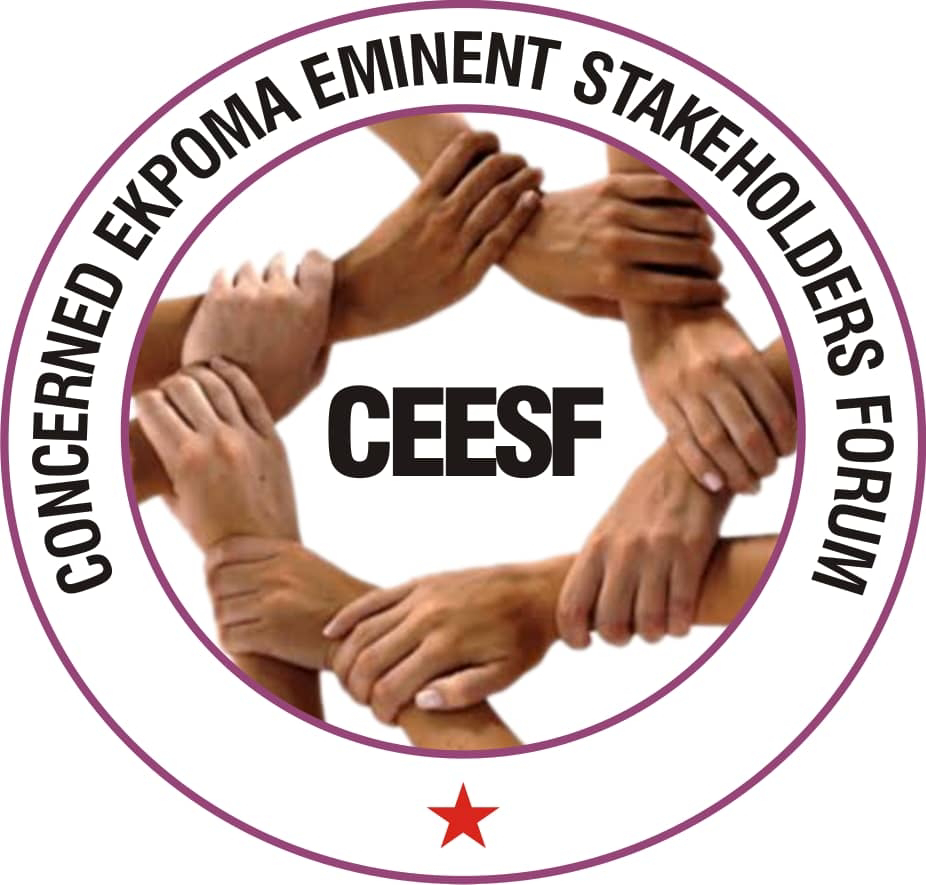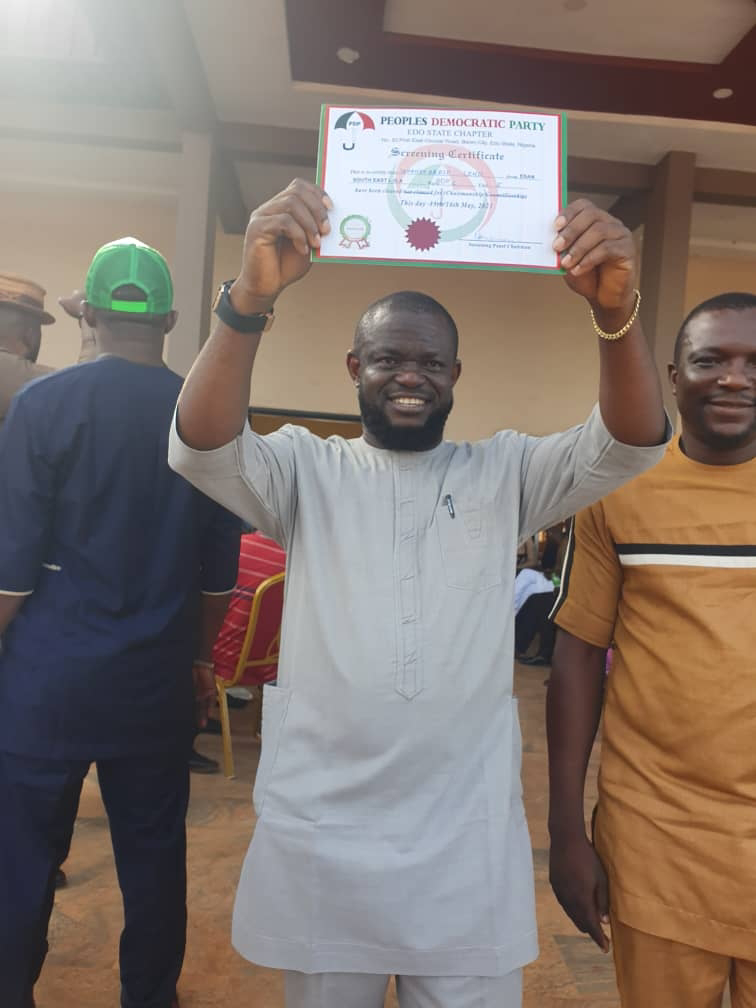CSOs Set Anti-corruption Agenda for Tinubu Govt
By Lucky Isibor
As the newly inaugurated President Ahmed Bola Tinubu led federal government settles down to put governance structures in place, Civil Society Organisations with thematic areas in Anti-corruption converged on Abuja, the nation's capital Tuesday, 25 July to brainstorm and set Anti-corruption agenda for the administration.
The CSOs tasked the Tinubu administration on the institutionalisation of those good anti-corruption initiatives the immediate past administration started, such as the Open Governance Partnership Initiative (OGP), Beneficial Ownership of Business, the Nigeria Open Contracting Portal (NOCOPO) and issues around transparency in procurement processes by constituting the Council and ensuring these cascade to the state levels.
They urged the new administration to expedite action on pending anti-corruption law, the whistleblower protection law and disaggregate blackmail, witch hunting and politics from whistleblowing so that it does not become a tool in the hands of blackmailers.
The CSOs also urged the Tinubu administration to implement the Orosaye panel report on Civil Service Reforms, work with the private sector, especially in the financial institutions in the area of Costumers Due Diligence otherwise known as Know Your Customer (KYC); include non financial institutions and professional bodies, such as the Quantity Surveyors, Estate Valuers, Engineers and Charted Accountants.
They also called for judicial reforms around Case Management and Practice Direction to enhance speedy prosecution of corruption related cases in Courts.
The CSOs were brought together by the African Network for Environment and Economic Justice (ANEEJ) for a National Anti-corruption Dialogue as part of the implementation of the Strengthening Civic Advocacy and Local Engagement (SCALE) project being implemented by Palladium and its partners and funded by the United States Agency for International Development (USAID).
Welcoming participants to the dialogue, the Executive Director of ANEEJ, Rev. David Ugolor noted that the SCALE project is a 5-year project being implemented by Palladium and its resource partners and funded by USAID Mission in Nigeria adding that It is designed to enhance local civil society organizations’ ability to be positive and responsible change agents in Nigeria.
According to Ugolor, "The Africa Network for Environment and Economic Justice (ANEEJ) is implementing the SCALE project as the anchor for the anti-corruption cluster, working with eight partner CSOs under the Strengthening Civic Advocacy and Local Engagement (SCALE) project. The cluster is working to promote anti-corruption and social inclusive policy reforms through multi-stakeholder initiatives at both national and sub-national levels in Nigeria, as well as promote reforms in the development commissions established by federal and state governments to develop the Niger Delta region".
Ugolor noted that the recent Transparency International Corruption Perception Index (CPI) rating, placing Nigeria in the 150 position out of 180 countries and the revelation that about 148 Billon dollars are stolen from Africa annually by political leaders, multinational organisations, business elites and civil servants with the collusion of the banking and property industries, are disturbing, worrisome and calls for concern.
"The 2022 CPI report ranked Nigeria 150 out of 180 countries. Even though the latest ranking was four places higher than the 2021 CPI ranking for the country, Nigeria still scored 24 out of 100 points which was not different from the 2021 CPI score falling back one point compared to the 2020 CPI. This indicates high level of corruption as in the previous reports.
"Other reports including the Corruption in Nigeria: Patterns and Trends Second Survey on Corruption as experienced by the population, 2019, published by NBS and UNODC supports this position. According to the UN and the AU, around $148 billion is stolen from Africa annually by political leaders, multinational corporations, the business elite and civil servants with complicity of banking and property industries in Europe, North America and elsewhere".
While thanking USAID and Palladium for making funds available for the project and the Anti-corruption Dialogue, Rev. Ugolor pointed out that the Anti-corruption Dialogue is expected to flesh out the roles the new administration and the CSOs are to play to sustain the gains of the previous administration in the fight against corruption.
"To foster continuity and sustenance of the successes recorded during the previous administration, there is therefore the need to bring stakeholders together to articulate the key areas the new administration should focus on, so as not to lose the gains achieved in the past eight years. This is one of the reasons why this national dialogue was convened. It is particularly important as ANEEJ assessment report on the implementation of anti-corruption commitments in Nigeria showed that actions need to be taken on several issues. Some laws have been enacted and certain actions need to be taken to drive the implementation. There are also pending laws that should be enacted to strengthen anti-corruption work in the country. The recently adopted national anti-corruption strategy also requires action to avoid the shortfalls of the past and the anti-corruption agencies need to be strengthened to be able to handle emerging issues".
In her remarks, the Chief of Party, Strengthening Civic Advocacy and Local Engagement (SCALE), Lydia Odeh pointed out that the mandate of the project is to enhance the capacity of CSOs to foster a more accountable and democratic Nigeria.
Odeh noted that the conversation is coming at the appropriate time as the country is transitioning from one administration to another and stressed the need to sustain the gains made in the fight against corruption.
In her words:"Our specific mandate is to strengthen the capacity of Nigerian CSOs to foster a more accountable, transparent, peaceful and democratic Nigeria. We priotise engagement, we priotise collaboration, we priotise partnership with a range of stakeholders to achieve these objectives
"We are gathered here to confront the most pressing challenge of our time - corruption. Corruption in Nigeria has hindered progress, it has perpetuated poverty and impeded development.
"As we enter into the new administration, it's crucial to maintain the progress attained in the fight against corruption.
"The assessment report by the Anti-corruption cluster has identified both successes and weaknesses in the implementation of the commitments by the previous government. It is imperative that we build upon our achievements and address the identified gaps to strengthen our efforts".
A representative of the United States Embassy, Walter Quintanilla, Deputy INL Director, USA Embassy, in his remarks noted that corruption deprives the citizens of their rights to essential services and perpetuates economic inequalities, adding that it's in recognition of its negative impact that the President Joe Biden administration in U.S. takes the fight against corruption as a core national security interest.
"Recognising its impact, the United States government under President Joe Biden has established the fight against corruption as a core national security interest. We understand that corruption hampers national security, economic equality and undermines the essence of democracy".
In a goodwill message, Dr. Matthew Ayi Bako of the British High Commission, praised ANEEJ's resilience in the fight against corruption in the face of demoralising results that you get fighting corruption in a country like Nigeria.
Also speaking, Dr. Otivie Igbuzor noted that a lot of progress has been made in the fight against corruption in Nigeria adding that, "today before corruption takes place it is reported because the level of awareness is very high".
In attendance were representatives of Open Governance Partnership Initiative OGP, National Agency for the Prohibition of Trafficking in Persons (NAPTIP), Rule of Law and Anti-corruption (RoLAC), Anti-corruption cluster members among other partners in the fight against corruption.




Comments
Post a Comment